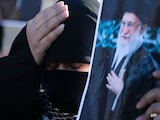Blocking of seats during counselling for postgraduate medical courses disadvantages higher-ranked candidates and undermines merit-based selection, the Supreme Court said today, issuing several directions to prevent this practice during admissions after NEET-PG, the all-India exam for admission to postgraduate courses.
Seat-blocking is a common practice across competitive exams. Candidates take admission to courses at multiple institutions as part of a contingency plan. Later, they choose the most preferred option and vacate the other seats. These seats are then up for grabs, but by then most candidates have already taken admission somewhere. So, candidates much lower on the merit list get a shot at these seats.
The bench of Justice JB Pardiwala and Justice R Mahadevan said seat-blocking is not merely an isolated wrongdoing, but reflects deeper systemic flaws.
"This malpractice distorts the actual availability of seats, fosters inequity among aspirants, and often reduces the process to one governed more by chance than merit," the court said in its order. It said systemic flaws rooted in "fragmented governance, lack of transparency, and weak policy enforcement" were responsible for this.
"Seat blocking in NEET-PG counselling occurs when candidates temporarily accept seats, only to abandon them later after securing more preferred options. This leads to those seats remaining unavailable in earlier rounds and opening up only in later stages, disadvantaging higher-ranked aspirants, who may have already committed to less preferred choices," the court said.
"Delays in state counselling, last-minute seat additions or deletions, and lack of coordination between quotas worsen the issue. As a result, lower-ranked candidates can secure better seats by taking risks, while merit-based selection is undermined Supreme Court observed," it added.
The bench issued several directions to the authorities to curb seat-blocking. These directions include: (i) implement a Nationally synchronized counselling calendar to align AIQ (All India Quota) and State rounds and prevent seat blocking across systems (ii) mandate Pre-Counselling Fee Disclosure by all private / deemed universities, detailing tuition, hostel, caution deposit, and miscellaneous charges (iii) establish a Centralized Fee Regulation Framework under the National Medical Commission (iv) permit upgrade windows post-round 2 for admitted candidates to shift to better seats without reopening counselling to new entrants and (v) publish raw scores, answer keys and normalization formulae for transparency in multi-shift NEET-PG exams.
The other directions are: (vi) enforce strict penalties for seat blocking including forfeiture of security deposit, disqualification from future NEET-PG exams (for repeat offenders), blacklisting of complicit colleges (vii) implement Aadhaar-based seat tracking to prevent multiple seat holdings and misrepresentation (viii) hold state authorities and institutional DMEs accountable under contempt or disciplinary action for rule or schedule violations (ix) Adopt a Uniform Counselling Conduct Code across all States for standard rules on eligibility, mop-up rounds, seat withdrawal, and grievance timelines and (x) set up a third-party oversight mechanism under NMC for annual audits of counselling data, compliance, and admission fairness.
Earlier, NEET-PG aspirants from the 2017-2018 academic session had approached the Allahabad High Court with their grievances, including seat-blocking. The High Court found that lower-ranked candidates were allowed to participate in the mop-up counselling rounds despite being allotted seats and this put higher-ranked candidates at a disadvantage.
The high court awarded compensation of Rs 10 lakh each to the petitioners and directed authorities to carry out reforms. The State of Uttar Pradesh and the Director General of Medical Education and Training challenged the order in the Supreme Court, which stayed it in 2018. In today's judgment, the court revised the compensation amount to Rs 1 lakh each. It acknowledged policy improvements carried out in 2021 and urged authorities to implement the directions.















